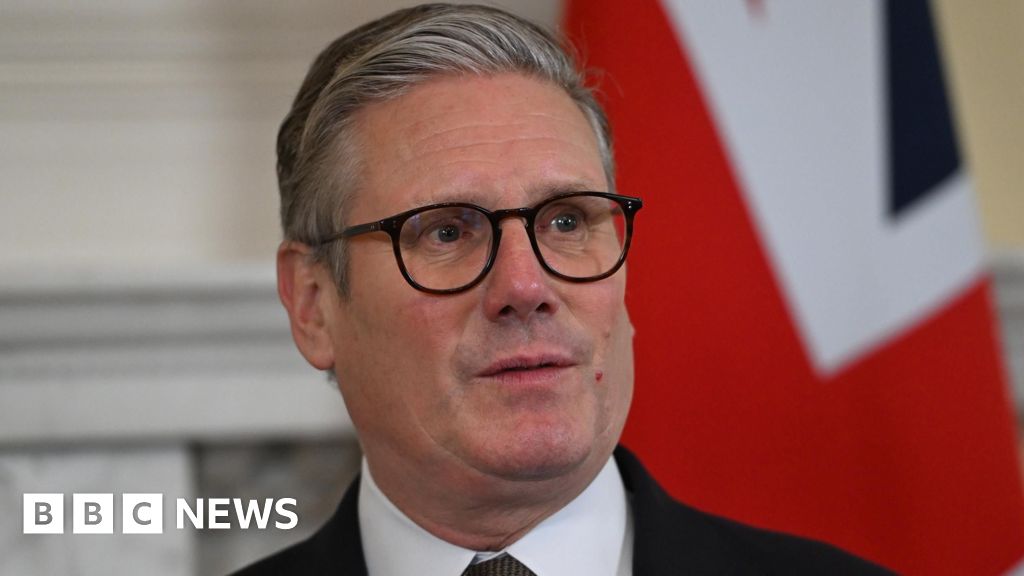Starmer Vows to Shield UK Businesses from Tariff 'Storm'

In a significant move to safeguard the interests of British businesses, Sir Keir Starmer, the leader of the UK Labour Party, has publicly pledged to protect the nation's economy from a looming wave of tariffs that have recently been implemented. This week, the UK, along with several other nations, faced a daunting 10% 'baseline' import duty, a development that has raised considerable concern among business owners and economic analysts alike.
In an op-ed published in the Sunday Telegraph, Starmer acknowledged the discomfort some may feel regarding the idea of government intervention in market dynamics. He stated, 'Some people may feel uncomfortable about this – the idea the state should intervene directly to shape the market has often been derided. But we simply cannot cling on to old sentiments when the world is turning this fast.' This remark underscores the urgency with which he views the current economic climate.
The implications of the newly imposed tariffs are vast. In addition to the 10% tariff on various imports, the UK has also been subjected to a staggering 25% tariff on car exports, as well as on steel and aluminium products. Moreover, many nations, including the UK, could face even steeper tariffs of up to 50%, set to take effect on April 9. The rationale behind these tariffs, introduced by US President Donald Trump, is to promote the purchase of American goods and stimulate the domestic economy. However, this approach has sparked concerns over a potential escalation into a global trade conflict.
The announcement of these tariffs coincided with a sharp decline in stock markets, with values dropping more than 5% as investors grappled with the fear of a looming global recession. In a direct response to these challenging trading conditions, Jaguar Land Rover announced on Saturday that it would 'pause' all shipments to the United States while it navigates the complexities of the new trading terms.
Starmer further elaborated on his vision for bolstering the UK's economic resilience by stating, 'This week we will turbocharge plans that will improve our domestic competitiveness, so we're less exposed to these kinds of global shocks.' He reiterated the Labour Party's commitment to utilizing industrial policy as a means to protect British businesses from the impending economic storm.
While the Prime Minister has expressed a willingness to implement industrial policy, he also acknowledged that some constituents may feel uneasy with such government intervention. Nevertheless, he insisted that the UK could not afford to cling to outdated beliefs in the face of rapid global changes.
Looking ahead, the government has not ruled out the possibility of tax increases in the autumn, although it opted against such measures in its recent Spring Statement. This fall, the Labour Party is expected to unveil an industrial strategy as part of its election manifesto, with plans that may be expedited to provide immediate support to UK firms facing tariff-related challenges.
In his article, Starmer reaffirmed the government's stance on negotiating for the best possible trade deal with the US while also emphasizing that 'all options remain on the table.' He stated, 'I will only strike a deal if it is right for British business and the security of working people.'
In the political arena, Conservative Party leader Kemi Badenoch has urged the Prime Minister to secure a 'deep and meaningful trade deal' with the United States that fosters growth while maintaining high standards.
Last year, the UK exported nearly £60 billion worth of goods to the US, with major exports including machinery, automobiles, and pharmaceuticals. In light of the evolving economic landscape, the UK government released a comprehensive 400-page document detailing potential US goods that could be subject to tariff responses. Business Secretary Jonathan Reynolds informed Members of Parliament that the government will engage with businesses to assess the impact of anticipated retaliatory tariffs.
The proposed list encompasses 27% of imports from the US, carefully selected to minimize disruption to the UK economy, as stated by the Department for Business and Trade.
Starmer has also indicated a commitment to fostering trade relationships with other economies to mitigate the adverse effects of US tariffs on UK exports. In a recent weekend discussion with French President Emmanuel Macron, there was a mutual acknowledgment that a trade war would serve no one's interests, although both leaders agreed that 'nothing should be off the table.'
However, amid these developments, both Conservative and Liberal Democrat leaders have pointed out that UK families and businesses are set to feel the immediate effects of the National Insurance hike for employers, which comes into effect today. This hike raises further questions about the capacity of British households and businesses to weather the impending economic turbulence.


















